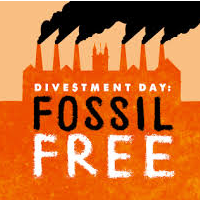State’s Giant Pension Funds Lost $5.2 Billion in Fossil Fuel Investments

It has been a 12 months in the market for fossil fuel investors. Oil alone lost around $1.3 trillion. Public institutions that bent to the will of alternative energy supporters clamoring for divestment saved a lot of money.
That would not include the California Public Employees’ Retirement System (CalPERS) and the California State Teachers’ Retirement System (CalSTRS). The 2.6 million members lost $5.2 billion, according to a report from Trillium Asset Management for 350.org, two eco-friendly organizations.
CalPERS lost $2.5 billion in oil and gas investments and $542 million in coal. The price of oil dropped by around 50%. CalSTRS dropped $1.8 billion on losing oil and gas investments and $333 million on coal. CalPERS lost $40 million on a single investment, Texas oil shale company Pioneer Natural Resources, according to Bloomberg.
Supporters of divestment are touting the downturn in fossil fuel fortunes as a solid argument for shifting those energy investments elsewhere. But CalPERS spokesman Joe Deanda told the Los Angeles Times it won’t make any difference. “We're a long-term investor and don't focus too much on any single year's performance. It won't change our long-term investment strategy.”
State Senate leader Kevin de León (D-24th District) wants that long-term strategy to change, regardless of how the stock market performs. The president pro tem introduced Senate Bill 185, which directs the pension funds to divest from companies that get at least half their revenue from mining coal used to generate electricity at power plants.
The bill would take effect in January 2018, when the funds are required to report to the Legislature on their divestment progress. Some critics say the bill has a rather large loophole. The pension funds could fail to divest if “the board determines in good faith that the action is consistent with the board’s fiduciary responsibilities established in the constitution.”
That fiduciary responsibility is to not lose money. CalPERS investments increased 2.4% during the past fiscal year and CalSTRS had returns of 4.8%. Standard & Poor’s 500 returned around 9% during the same period.
An analysis of the bill by legislative staffers pointed out that the pension fund managers have historically liked to keep all their investment options open and the Legislature out of their business. They also have expressed a preference for constructive engagement (pressing for change from within) over divesting. The bill passed the Senate and is in the Assembly.
The fourth and last “Comment” in the staff analysis was a plea for lawmakers to back off. It was entitled “Playing with House Money” and was meant to emphasize that legislators were making an investment decision while the pension funds bore the risk.
But, as the Best Answer at Yahoo Answers correctly observed, “The term actually applies more to gambling than it does investing.” A distinction without a difference, perhaps.
–Ken Broder
To Learn More:
California Pension Funds Lose $5 Billion on Fossil Fuels—Report (by David R. Baker, San Francisco Chronicle)
State Pension Systems Face Losses and Legislative Pressure on Coal Investments (by Allen Young, Sacramento Business Journal)
CalPERS, CalSTRS Took Big Losses on Energy Investments, Report Says (by Dean Starkman, Los Angeles Times)
The Oil Crash Has Caused a $1.3 Trillion Wipeout (by Asjylyn Loder, Bloomberg)
California Pension Funds Lost More than $5 Billion from Fossil Fuel Holdings (EcoWatch)
- Top Stories
- Controversies
- Where is the Money Going?
- California and the Nation
- Appointments and Resignations
- Unusual News
- Latest News
- California Forbids U.S. Immigration Agents from Pretending to be Police
- California Lawmakers Urged to Strip “Self-Dealing” Tax Board of Its Duties
- Big Oil’s Grip on California
- Santa Cruz Police See Homeland Security Betrayal in Use of Gang Roundup as Cover for Immigration Raid
- Oil Companies Face Deadline to Stop Polluting California Groundwater





